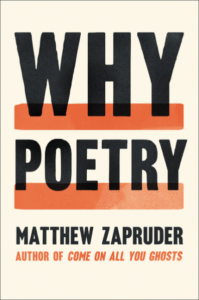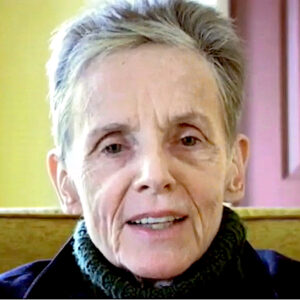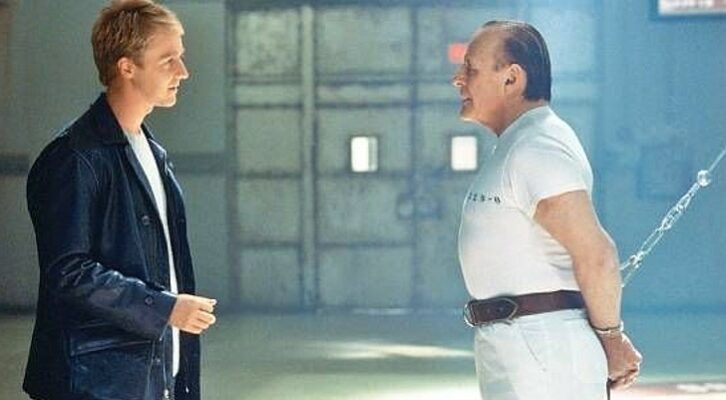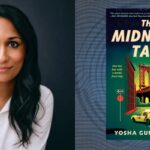
What Poetry Can Teach Us About Power
Political Poems Use Language in a Way Distinct from Rhetoric
1.
I have always been reluctant to hitch up poetry to the wagon of utility. As John Keats wrote in a letter, “we hate poetry that has a palpable design upon us.” Poetry seems to get worse the more it seems interested in lecturing and instructing us, usually about things that we already know and agree with.
However, I do believe that poetry has social and political uses. The usefulness of poetry has less to do with delivering messages (which we can just as easily get from prose), and far more to do with what poems can do to our language, re-enlivening and reactivating it, and thereby drawing us into a different form of attention and awareness.
It is a powerful thing when a poem finds its way, directly or otherwise, to the biggest issues in our social lives. Yet even the greatest poets can stumble when they start to bend their poems to a political purpose. Political poems have a tendency to turn into lyricized essays, or editorials, or sermons, or rants.
This is partially because the language of politics is so often designed to do the opposite of what poems do: the poet has to remain vigilant not to slip into euphemism, generalization, obscuring abstraction. And it is also because the subject matter is so important to the poet, which can cause the poet to begin to prioritize tasks better left to prose: informing, convincing, lecturing, describing, reporting. When that happens, the poems, however laudable in their intentions, can stop feeling like poems, and become more like, at best, poetic prose, and at worst, decorative, unnecessary lyricizing.
One of the most useful descriptions of this danger is in Richard Hugo’s little manual about writing poetry, The Triggering Town. Hugo talks bluntly to beginning poets about a choice they have in relation to language. Are they going to try to control it, to make it say what they want it to say? Or are they going to follow its possibilities, even (and maybe even especially) if those possibilities lead them away from their original intentions?
This, according to Hugo, is the inescapable choice only poetry requires us to make. Here he makes a distinction between poetry as a genre and other genres such as journalism:
In the news article the relation of the words to the subject . . . is a strong one. The relation of the words to the writer is so weak that for our purposes it isn’t worth consideration. Since the majority of your reading has been newspapers, you are used to seeing language function this way.
That’s how prose works. When writing it, we ultimately always care about using language to do something. Poetry, on the other hand, requires us to rethink our instinctive hierarchy of content over the material of language:
When you write a poem these relations must reverse themselves. That is, the relation of the words to the subject must weaken and the relation of the words to the writer (you) must take on strength. . . . This is probably the hardest thing about writing poems. It may be a problem with every poem, at least for a long time. Somehow you must switch your allegiance from the triggering subject to the words.
So many times I have taught this essay by Hugo, and every single time, my students immediately start to worry. What about what I want to say, about my personal experiences, or about the world? Shouldn’t I be expressing myself and my ideas through poetry? Are you saying that we should write poetry that isn’t true, or relevant to the big problems of the world? What about what is right, and good? I tell them to keep reading, as Hugo anticipates this objection:
By now you may be thinking, doesn’t this lead finally to amoral and shallow writing? Yes it does, if you are amoral and shallow. I hope it will lead you to yourself and the way you feel. All poets I know, and I know plenty of them, have an unusually strong moral sense, and that is why they can go into the cynical world of the imagination and not feel so threatened that they become impotent. There’s fear sometimes involved but also joy, an exhilaration that can’t be explained to anyone who has not experienced it. Don’t worry about morality. Most people who worry about morality ought to.
For Hugo, following the suggestions of the material of language, instead of trying to bend it to expressing what we already know, is inherently ethical. Following our internal sense of music leads to us revealing who we really are. Keats thought this too. In his negative capability letter, he writes that “with a great poet the sense of Beauty overcomes every other consideration, or rather obliterates all consideration.”
“Beauty,” here, is an easily misunderstood term. It is so easily confused with mere decoration, art that doesn’t have a commitment to deep meaning, art that merely diverts, as opposed to engaging with the great problems of the world. But Keats isn’t making an argument that poems should be merely decorative or pretty. His great odes are the furthest things from mere aesthetic exercises. They are mortally engaged with the deepest concerns of any living person.
In poetry, beauty can be far more than mere prettiness, though it is good that for some poets that is enough. For some poets, a sense of beauty will be in sound, or in the visual images language can conjure. For others it will be in the disruption a poem can create. And for still others, the beauty of a poem will have far less to do with what we ordinarily consider beautiful or “poetic” language, and far more to do with the powerful, striking movement of the mind as it thinks through complex or difficult issues, personal or political or environmental or global. These poems can take on a role of advocacy or polemic, while also remaining inside the unsolvability of it all.
Poets are at their best when they follow Keats’s and Hugo’s advice, to see where the language leads them, and where they as poets end up when they follow it. What is on our minds, what we care about most, we find a way to talk about. If you are a person who really, truly cares about the environment or politics or equality in matters of race or gender or economics or anywhere else, these concerns will naturally emerge in your poems. Your only job is to follow your instinctive, personal, idiosyncratic sense of what is beautiful, and to see what emerges. The danger of course is that in doing so you are likely to discover and reveal what it is you really care about.
2.
The greatest poems written about political issues often contain within them a central ambiguity that competes with genuine certainty and rage. Amiri Baraka’s glorious, problematic poem “Somebody Blew Up America” is a poem full of beauty and truth, along with rage and confusion. In it, Baraka for some reason repeats an untrue legend that there were no Jews who died in the World Trade Center attacks. I still can’t really understand what he was trying to do there, whether he was being ironic, or just repeating a question people had, or if he really believed that.
That one moment in the poem, understandably, has become a focal point of much discussion. It’s definitely a poem that troubles me personally. But I also love it: its sound and meaning and genuine, desperate, angry questioning feel completely authentic and necessary to me.
We know who the people are who blew up the World Trade Center buildings. But who blew up America? Who ruined and destroyed our country, and turned everything that is good into something awful? According to the title, somebody. The poem is a kind of increasingly desperate, futile investigation into who that somebody might be.
This investigation is not primarily logical and rational. It is not an argument for a coherent way of thinking. It is not even an answer. It is a series of questions. We find genuine questions everywhere in poetry because they direct the language away from certainty and stasis, while also leaving plenty of room to be concrete and precise. In the best poems, often the poet does not know the answers.
Here, the question is, “Who?” Asking it with increasing anger and despair, the poet turns into a kind of epistemological owl:
Who make money from war
Who make dough from fear and lies
Who want the world like it is
Who want the world to be ruled by imperialism and national
oppression and terror violence, and hunger and poverty.
Who is the ruler of Hell?
Who is the most powerful
Who you know ever
Seen God?
But everybody seen
The Devil
Like an Owl exploding
In your life in your brain in your self
Like an Owl who know the devil
All night, all day if you listen, Like an Owl
Exploding in fire. We hear the questions rise
In terrible flame like the whistle of a crazy dog
Like the acid vomit of the fire of Hell
Who and Who and WHO who who
Whoooo and Whooooooooooooooooooooo!
This poem asks, who is responsible for the terrible things that are happening all around us? And the poem is willing to continually rest in half knowledge, to enact the feelings of anger and uncertainty and even the impossibility of knowledge. It is in this willingness that the poem makes its meaning, something far beyond mere polemic. Again and again in this poem “We hear the questions rise / In terrible flame” until the poem ends with the cry “Who” that is both human and animal, extended into a sound that in its very meaninglessness signifies our vast, helpless frustration.
3.
Over the past several years, since I first read it, I have come back again and again to “Power,” by Audre Lorde, with a mixture of awe and sorrow. Lorde wrote this poem after hearing the news of the acquittal of a white police officer for the killing of a ten-year-old African American boy, in April 1973. The poem begins:
The difference between poetry and rhetoric
is being ready to kill
yourself
instead of your children.
I am trapped on a desert of raw gunshot wounds
and a dead child dragging his shattered black
face off the edge of my sleep
blood from his punctured cheeks and shoulders
is the only liquid for miles
Lorde seems to refer to Yeats’s famous remark “We make out of the quarrels with others, rhetoric, but of the quarrels with ourselves, poetry,” while raising the stakes far above mere quarreling, to a mortal level. For her, the issue of how to speak about this murder is itself a mortal and moral question. She is also thinking about the danger that her emotions will cause her to forget poetry, and slip into rhetoric, that is, speech designed primarily to argue and to convince.
She intuits that her rage at the news of this event leaves her with no alternative but to become a kind of vampire, “thirsting for the wetness” of the blood of the child. Here, she knows she is locating herself in a territory of great ambiguity, expressing the rage while also standing outside it in fear and wonder.
It is clear that she perceives that her feelings of anger are both justified and also a kind of trap, a continued violence that the very structure of racial violence perpetrates on her. Though there is a logic to it, her knowledge is not primarily logical: it is quick, associative, intuitive, metaphorical, poetic. She conflates the murder of this black child she does not know with the imagined loss of her own son. The poem continues by returning to a more factual and documentary territory:
A policeman who shot down a ten year old in Queens
stood over the boy with his cop shoes in childish blood
and a voice said “Die you little motherfucker” and
there are tapes to prove it. At his trial
this policeman said in his own defense
“I didn’t notice the size nor nothing else
only the color”. And
there are tapes to prove that, too.
Today that 37 year old white man
with 13 years of police forcing
was set free
by eleven white men who said they were satisfied
justice had been done
and one Black Woman who said
“They convinced me” meaning
they had dragged her 4’10” black Woman’s frame
over the hot coals
of four centuries of white male approval
until she let go
the first real power she ever had
and lined her own womb with cement
to make a graveyard for our children.
Here, she is willing to risk leaving behind our traditional conceptions of “poetry” in the interests of directly communicating the facts of the case. I find this willingness intensely generous, even selfless: her quest for truth is more important than her desire to be seen as a “good poet.” The poem ends with great and dangerous imaginative freedom:
I have not been able to touch the destruction
within me.
But unless I learn to use
the difference between poetry and rhetoric
my power too will run corrupt as poisonous mold
or lie limp and useless as an unconnected wire
and one day I will take my teenaged plug
and connect it to the nearest socket
raping an 85 year old white woman
who is somebody’s mother
and as I beat her senseless and set a torch to her bed
a greek chorus will be singing in 3/4 time
“Poor thing. She never hurt a soul. What beasts they are.”
It must have taken immense honesty, and both personal and poetic courage, for Lorde to allow herself to imagine that she might plug in her internal adolescent avatar of pure rage, who will then commit an unspeakable act.
This poem could be seen as an intuitive and associative version of the explorations in the work of Richard Wright, James Baldwin, Ta-Nehisi Coates, and others who explore how justified rage can become an internalized violence. Here, those problems have been made available for us in the starkest and most unrelenting possible manner, while also leaving us in a state of profound and necessary irresolution. The immense, sickening, nearly unspeakable tragedy is that this poem not only could have been written so many times over the course of American history, but continues to be ever more relevant. It not only tells us something about the experience of black Americans, in their mortal encounters with violence and power; it shows us what only poetry can do, and what we can only know by reading our greatest poems.
__________________________________

From Why Poetry. Used with permission of Ecco. Copyright 2017 by Matthew Zapruder.
Matthew Zapruder
Matthew Zapruder is the author of five collections of poetry, most recently Father’s Day (Copper Canyon), as well as Why Poetry (Ecco/Harper Collins). He is editor at large at Wave Books, where he edits contemporary poetry, prose, and translations. From 2016-7 he held the annually rotating position of Editor of the Poetry Column for the New York Times Magazine. He teaches in the MFA in creative writing at Saint Mary’s College of California. A book of prose, Story of a Poem, will be published by Unnamed Press in April, 2023.



















